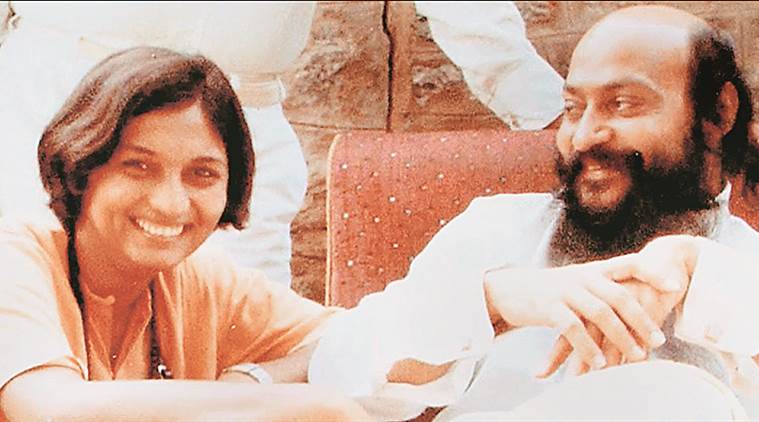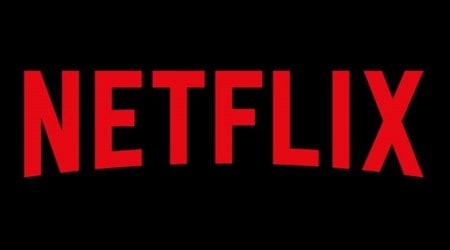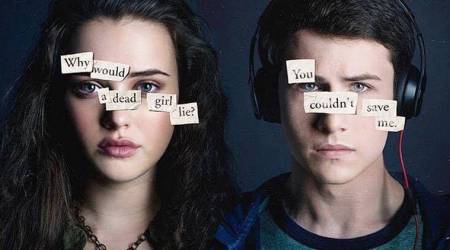
Wild Wild Melody
Written by Suanshu Khurana | Updated: May 2, 2018 12:00:54 am ..
Written by Suanshu Khurana | Updated: May 2, 2018 12:00:54 am Related News
-
Tata Sky subscribers can soon access Netflix content

Familial Ties

Top 10 horror movies on Netflix: Veronica, The Witch and more
 Ma Anand Sheela and Osho in a still from Wild Wild Country
Ma Anand Sheela and Osho in a still from Wild Wild Country
Wild Wild Country — Chapman and Maclain Ways thrilling nosedive into the world of Osho and his commune, in Oregon, US, highlights the conflicts between the Osho followers and the local community. As it gets darker and cryptic with a murder plot, one of the biggest immigration frauds in the US and a bio-terror attack, the sonic accompaniments in the background are hard to miss. The sounds vary — from surprise through an acoustic guitar to string quartets creating profundity, thrill and fear at different points. This is paired with music supervisor Chris Swansons brilliant additions through an alternative country sound resulting in a “cowboy vibe”. Then there is the phenomenal opening track of Bill Callahans 2011 album Apoclypse, a two-chord contemplation called Drover that threw up the phrase, Wild Wild Country. The man responsible for the background score is the pairs third and oldest brother Brocker Way, 34, whod also composed for the duos last one, The Battered Bastards of Baseball, story of a defunct baseball team in Oregon. In an exclusive interview from Los Angeles, Way talks of his messy process, getting into the heads of the characters and why he is not an expert in documentary music-making. Excerpts:
September 2018 will see the official release of the Wild Wild Country soundtrack. It isnt often that a documentary soundtrack is released.
Its really exciting and thrilling. When Chap (Chapman) and I did our first album and began sending it to the labels, Western Vinyl was one of them and it didnt work out with them. For them to now pick up the music and release it, its wonderful. Im also lucky that Chap and Mac (Maclain) have a style of documentary filmmaking, which relies heavily on scoring. A lot of documentaries dont have a lot of music and I appreciate that as well, but in this case, it makes it a viable album. These two use a lot of music to drop the viewer right behind the eyes of the characters and want an immersive experience. So there is a lot of music that a label can sort through.
How do you see the decision to include the distinctive Americana sound in the film? Chris (Swanson) and you worked independently in this regard.
Chris is extremely talented. For every section hed come back with a well-curated playlist. Chap and Mac were looking for this cosmic cowboy narrator that would speak of the larger battles that had taken place on the land, something that would hark back to a generations past. A voice that says that this has happened before and will happen again.
The background score plays a significant role in the interpretation of the film. How exacting were Chapman and Maclain in terms of the blueprint of the sound?
What Mac and Chap asked for in terms of the score is slightly different as compared to what they wanted in terms of the songs. With the score, the primary thing was for the viewer to feel the same things that the talking heads were portraying. These are storytellers as much as they are people recounting their story. The idea was not to be fair or balanced. They wanted to throw the viewer onto the ride. Whether it was Jane, the Australian or Prem Niren, the lawyer — there is one point when they go to India and talk of this sense of home; the two asked me to score that sense of belongingness. The audience was to feel a sense of relief, that beauty and calm. Often I had to be a person who grew up in Oregon, the intrigue, the fear and the music thatd move along with that; then the music for the Sannyasins. But they never wanted the viewer to stay apart from the storytellers and say that I dont like this person. That decision was to come in the end.
The music has found praise but has also been criticised for misinterpretation, about the background making the audience more sympathetic to the characters.
I think thats a fair criticism if thats the approach of the documentary. The filmmakers dont want to manipulate someone into having sympathy when they shouldnt. They want to string the viewers along with the characters. Because following these characters would allow the viewer to think, could I have done this? When would I get off the train? According to both the filmmakers, the music reflects what the characters are thinking and feeling, not what the directors are. In the future they may go deeper — they may take subjects that have committed worse crimes and keep you on the same journey. They dont want to replicate a style of journalism which shows a comprehensive overlook on everything. The idea is to learn about ourselves. Thats why they push the music so far. They consider their audience to be mature enough and are less worried about keeping someone in too good a light.
Despite the documentary having strong Indian characters and moving between Mumbai, Pune and Oregon, it keeps away from using any Indian sounds. Was that a conscious decision? Did you fear exoticism?
It was a conscious decision, yes. I believe there could have been moments of Indian music. But the vast majority takes place in Oregon. The aspect of the story that they were documenting was this struggle between the two groups as they fought within and outside our political, legal and belief system. It was very Indian but still a very American saga. It was not a documentary about Osho, but about American foundational principles and about issues of immigration rights, religion, minority rights, land rights and voting rights among others. They wanted me to make the music that reflected that. As far as exoticism is concerned, if we had introduced Indian music, it would have stood out so much from the rest of the score, that it would have seemed exotic. There was a high level of exoticism with those westerners. By putting in more Indian music, it would have brought a certain focus to that exoticism when they are trying to say something else… and would have felt superficial. Not that Indian music is in any way superficial but standing out could have done that.
How intense is it to work on a miniscule budget on a project like Wild Wild Country? What was your process like?
While working with my brothers, initially you feel like a professional composer with good ideas. Towards the end, its an intense daily churning. Its so messy that by the end you want to get out something they like. They dont care if it sounds amazing, they want it to sound right. On Wild Wild Country you absolutely have to stay on schedule, and every night you hope to God that whatever you wrote throughout the night will be liked and approved.
Was music an integral part of your lives while growing up with Chapman and Maclain?
Chap and I had been doing music since we were very young. Chap had been in bands since elementary school. We began playing and writing music together in our room and went on to release a pop album in college in 2007. We were in the process of doing the second album when Chap and Mac got The Battered Bastards of Baseball into Sundance, so we put everything on pause and they went into full-time documentary work while I did some music projects.
Scoring for documentaries, is that a space that youve come to like?
I think because Mac and Chap like to tip the musical tone towards the expression of the talking heads, it might put our musical approach a bit outside the traditional strategy for scoring for documentary films. So Im very hesitant to call myself an expert. But scoring like this is very satisfying as a composer. I like this space a lot.
For all the latest Entertainment News, download Indian Express App
More Related News



